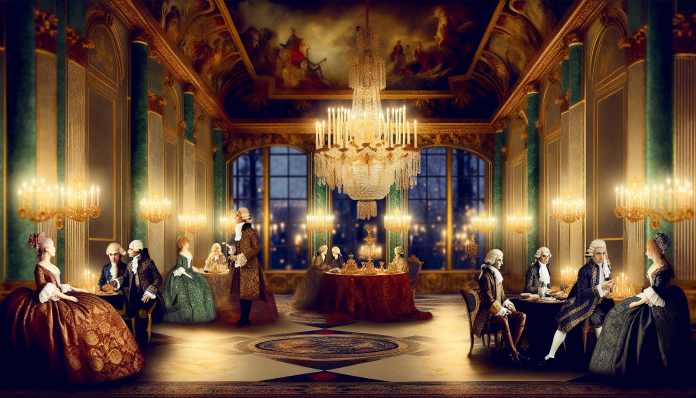Introduction
The fall of the Romanov dynasty is one of history’s most compelling narratives of intrigue, passion, and tragedy. At the center of this royal tumult was the enigmatic Tsarina Alexandra and her deep bond with the mystic Rasputin. Their controversial relationship, colored by whispers of scandal, had severe repercussions that reverberated through the corridors of power in early 20th-century Russia. The time was fraught with an entrenched class system and rigid societal norms, where loyalty to the crown demanded sacrifices of personal life.
The Scandal
The scandal unraveled in the imperial court during the early years of the 20th century. Alexandra, a German princess married to Tsar Nicholas II, found herself increasingly isolated from the political machinations of her empire. In this troubled period, her son, Alexei, was diagnosed with hemophilia—a condition that left the young heir vulnerable and led Alexandra to seek help in unusual places.
Enter Grigori Rasputin, a mystic and self-proclaimed healer. To the Romanovs, Rasputin appeared to be a miracle worker. His ability to temporarily alleviate Alexei’s suffering created an intimate bond between him and Alexandra—one that sparked a series of rumors. These rumors suggested more than just spiritual advisement; many claimed that Rasputin had an unseemly influence over Alexandra, leading to accusations of an affair that scandalized the Russian elite.
Court officials and nobility were aghast at what they perceived as Rasputin’s vulgar intrusion into royal life. One nobleman reportedly stated, “There can be no peace in the realm as long as he walks among us.” The whispers escalated, framing Alexandra as a queen ensnared by her own recklessness, making enemies within her own ground.
Not everyone viewed the affair as scandalous; some sympathized with Alexandra’s vulnerability. Historian Oreste Possevino remarked, “She is a mother first, and a queen second… desperation often leads us to places we would normally avoid.” However, as Rasputin’s influence over the imperial family continued to grow, so did public dissent towards the monarchy, setting the stage for the catastrophic events of the 1917 Revolution.
Moral and Cultural Analysis
In early 20th-century Russia, the societal expectations of royalty were steeped in decorum and propriety. Public opinion was especially harsh regarding women’s behavior. A woman in Alexandra’s position was expected to uphold the sanctity of her marriage and the dignity of her station. The scandal surrounding her relationship with Rasputin incited outrage, not only among political opponents of the monarchy but also among ordinary citizens who revered the imperial family as paragons of virtue.
After Rasputin’s eventual assassination in 1916 by disillusioned nobles, the fallout significantly tarnished the Romanov dynasty’s reputation—a dynasty already faltering in the eyes of its people. The revolution that followed would lead to the abdication and execution of the Romanovs, forever changing Russia’s course.
In contrast, modern reactions to the scandal would differ dramatically. Today, the dynamics of power, mental health, and personal agency are viewed through a different lens. Alexandra might be seen as a mother seeking aid for her ailing child rather than a reckless queen indulging in forbidden romance. The stigma around mental health issues has evolved, allowing for more understanding and less judgment in scenarios like Alexandra’s.
Whereas Edward VIII’s 1936 abdication for love shows a more modern acceptance of personal choice over duty, Alexandria’s plight speaks to the complex intersections of loyalty, obligation, and personal despair. In today’s context, one might even view the relationship as a profound exploration of vulnerability in the face of immense pressure, a theme that transcends time.
As we reflect on the Romanov family’s Forbidden Love Affairs, it becomes evident that the echoes of history continue to resonate in our modern narratives about love, power, and the cost of scandal.

